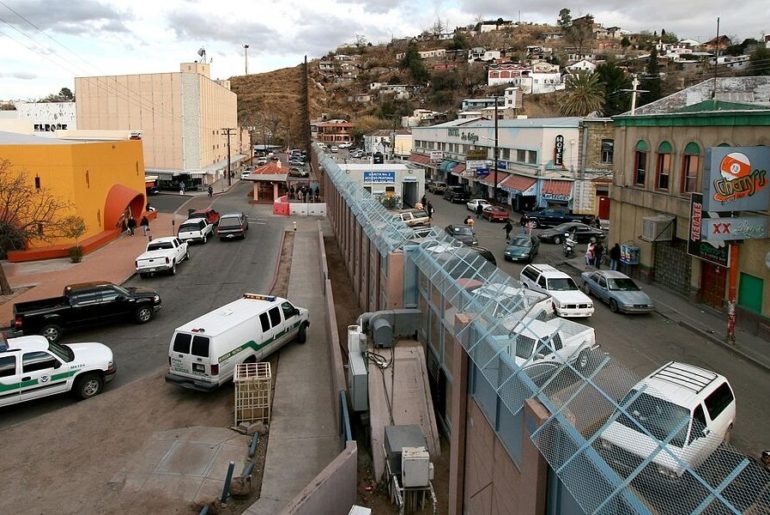The city of Matamoros, Mexico, where the U.S.—Mexico border butts up against gulf waters, is roughly 160 miles south of Corpus Christi, TX. Brownsville, which is directly across the border from Matamoros, is home to several massive facilities like Casa Padre, housing thousands of young immigrant children in detention.
Matamoros is also the site of a sprawling tent city, where 2,500 migrants seeking asylum in the U.S. await their fate in immigration court. This is the office of Dr. Dairon Elisondo Rojas.
Dr. Elisondo earns $30 a day working from 10 to 4, seven days a week tending to the medical needs of the camp’s migrant population. He usually sees about 50 patients in that time frame.
Elisondo, a Cuban immigrant, arrived at the Brownsville border at the beginning of December, attempting to seek asylum entry into the U.S. Cuba prepares new doctors through a program in which they’re sent to allied and impoverished countries. Post medical school, he was sent to Venezuela to practice his specialty, critical care. But after three years in the country, Elisondo became a vocal critic of the Maduro administration and was sent home. He was banned from practicing medicine.
Fearing persecution after his return to Cuba, Elisondo and his girlfriend traveled to the U.S. to present themselves at the border for asylum. Since 1966, Cubans who were able to make the journey by land or sea to the U.S. were allowed to remain. President Barack Obama ended the policy in the final days of his administration. Meanwhile, Elisondo and other immigrants linger at the border. His next immigration hearing isn’t until February.
“Thank God for the Cuban doctor,” Luis, a Honduran migrant whose family has lived in the camp since September told the New York Times.
Dr. Elisondo has treated his fair share of minor illnesses like colds and asthma during his time there. But for more pressing cases that need immediate treatment, like 10-year-old Angel, who broke his leg playing soccer, Dr. Elisondo has to arrange transfers to the nearest local Mexican hospital. He is the only full-time doctor at the makeshift camp, where a lack of resources and squalid conditions create a petri dish of diseases. Elisondo has treated acute medical conditions like heart attacks and epileptic seizures, but the majority of his cases include communicable diseases like pneumonia and scabies that can spread rapidly in a close-knit environment.
The pop-up clinic in Matamoros where Elisondo practices medicine was organized by Global Response Management, an international nonprofit whose volunteer nurses and doctors have operated in war-torn areas like Iraq, Syria and Yemen. Elisondo sent the director, Helen Perry, his credentials via WhatsApp. Perry says that if Elisondo’s plans to immigrate into the U.S. are thwarted, he shouldn’t worry.
“He doesn’t know this, but I am going to send him to other places in the world. He is highly trained,” Perry told the New York Times.

